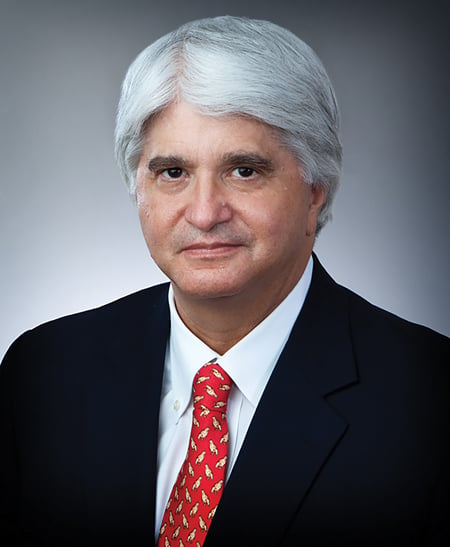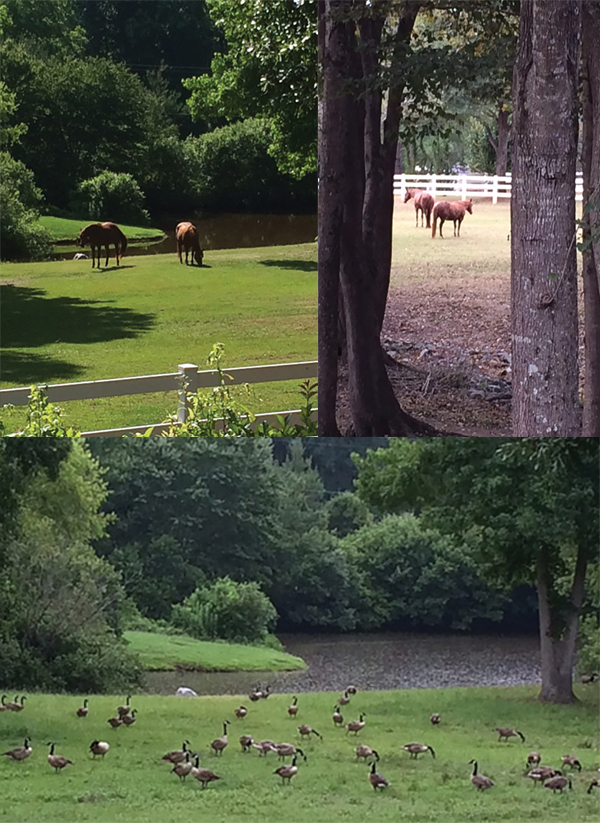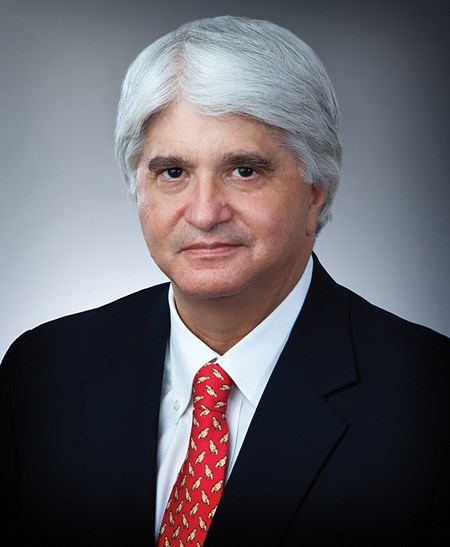
Newly elected ACEP Chairman of the Board John Rogers, who recently completed a term as the ACEP Board liaison to EMRA, is known for his calm demeanor, tendency to listen more than speak, and affinity for thinking several steps ahead. We invite you to learn more about this EM leader.

Medical school: University of Iowa
Residency: Medical Center of Central Georgia
Current Position: Co-ED Medical Director and Immediate Past President of the Medical Staff, Coliseum Northside Hospital, Macon, Georgia
Last non-textbook you read?
Edith Hamilton's The Greek Way from 1930. Hamilton was the headmistress at Bryn Mawr for 25 years. She provides a glimpse at the many gifts the ancient Greeks gave us. She opens the world of Homer, Herodotus, Aeschuylus, Sophocles, and more. Not only explaining the difference between Eastern and Western thought, and Greek religion as opposed to myth, but how we in the West view the world today. Within its pages you will begin to understand how physicians are inherently Greek in their philosophy and outlook on life.
What experiences have impacted you most as a physician?
There are four. Three are examples of sudden tragedy that profoundly affected the lives of patients as well as their families. First there was the 16-year-old who after an MVC arrived to the ED in two different EMS units, she in one and her right lower extremity in the other. The phone call to her parents at midnight was exceedingly difficult as was her subsequent adjustment to her new reality. Then there was the woman with multiple fractures after being run over multiple times and beaten with a crowbar by her husband. Who despite her injuries and severe pain said, “At least I know he loves me.” And the 7-year-old who on Halloween was struck in the abdomen by an errant bullet fired by a partygoer. She died on the operating table, with my hands around her liver and aorta. She was still partially clothed in her princess costume. I still remember the profound weeping of the OR nurses and will never forget her mother's silent sobbing. Finally is the story that I tried to tell to the EMRA Board but have difficulty every time I try to tell it. Suffice it to say, sometimes patients do not need our technology, our procedural skill, or unique knowledge; what they need is our compassion and our kindness. They need the small moments when one human heart connects with another.
How will EM change during the next decade?
EM physicians will become the primary source of all unscheduled care, supported by the various specialties. Those in private offices or other outpatient settings will focus upon chronic care and prevention. Technology will continue to be leveraged, and advances in our science will continue to compel changes in our practice. However, the major shift in medicine will be a movement toward what has been termed precision population health. Applying data to make targeted changes to the environment or other factors that affect large populations to address health issues specific to them.
How do you get exercise?
Learned how to swim before the age of 3 and found water to be a natural environment. Was a competitive swimmer from an early age and through college. Continue to swim as much as possible, not only for the exercise but for the quiet time it provides. The solitude allows one to retreat into one's own mind and thoughts. It is a respite from the noise, interruptions, and chaos of our daily lives.
Family and pets?
Live with my wife Jan, who has her Master's in Nursing Administration as well as an MBA. She is the Director of Quality at my hospital, which often leads to interesting conversations at home. She keeps me grounded and is far smarter than I would ever hope to be. On our 6 acres we have a small creek that leads to a small lake that we share with 2 horses and 3 dogs. Frequent visits from a flock of geese, a heron, beaver, turtles, and the occasional deer round out the neighborhood. Teddy, a miniature pinscher, is the newest member of the family and has become my constant companion. Our 4 am walks are now a routine that he enjoys, and I have come to look forward to as well.
Who gave you the most useful advice and what was it?
The best advice was in a way a time management tip. It came from Sir William Olser. He gave an address to Yale medical students in April of 1913. It has been preserved in a book titled The Way of Life, a copy of which I keep in my personal library. The Titanic disaster of April 1912 was still fresh in their minds. He referenced the lack of watertight doors on the Titanic, to the way of life he espoused. Osler recommended that we keep day-tight compartments – that we not only complete what needs to be done but also leave the problems of the day in that day alone and not let them spill over into another day. Each day is sufficient to itself.
What is the best way to avoid burnout?
Nurture your inner life as much as you do your outer life. It is not what happens outside of us that causes the frustration and stress, but how we react internally to the stresses and strains of our life, and of our work. Being at peace within yourself is the magic for avoiding the burnout too many of us suffer. For me, my heart is kept at peace by doing something intentionally for myself, for someone else, and for my career, each and every day. My refuge lies in books, and daily I read something that will make me a better person, even if only a paragraph. By paying attention I am often able to recognize opportunities to do something for someone else, no matter how small. And to improve myself as physician, I cling to the attitude of a resident by constantly learning. Daily I encounter things I do not know or do not understand well and take advantage of these recognitions to learn something new, no matter how little.
What are the 3 most important traits of a successful emergency physician?
- Compassion and kindness despite the behavior or words of others
- Calm leadership in the midst of chaos
- Commitment to increasing one's skill and knowledge, advancing our craft, and improving the lives of those who practice it.




